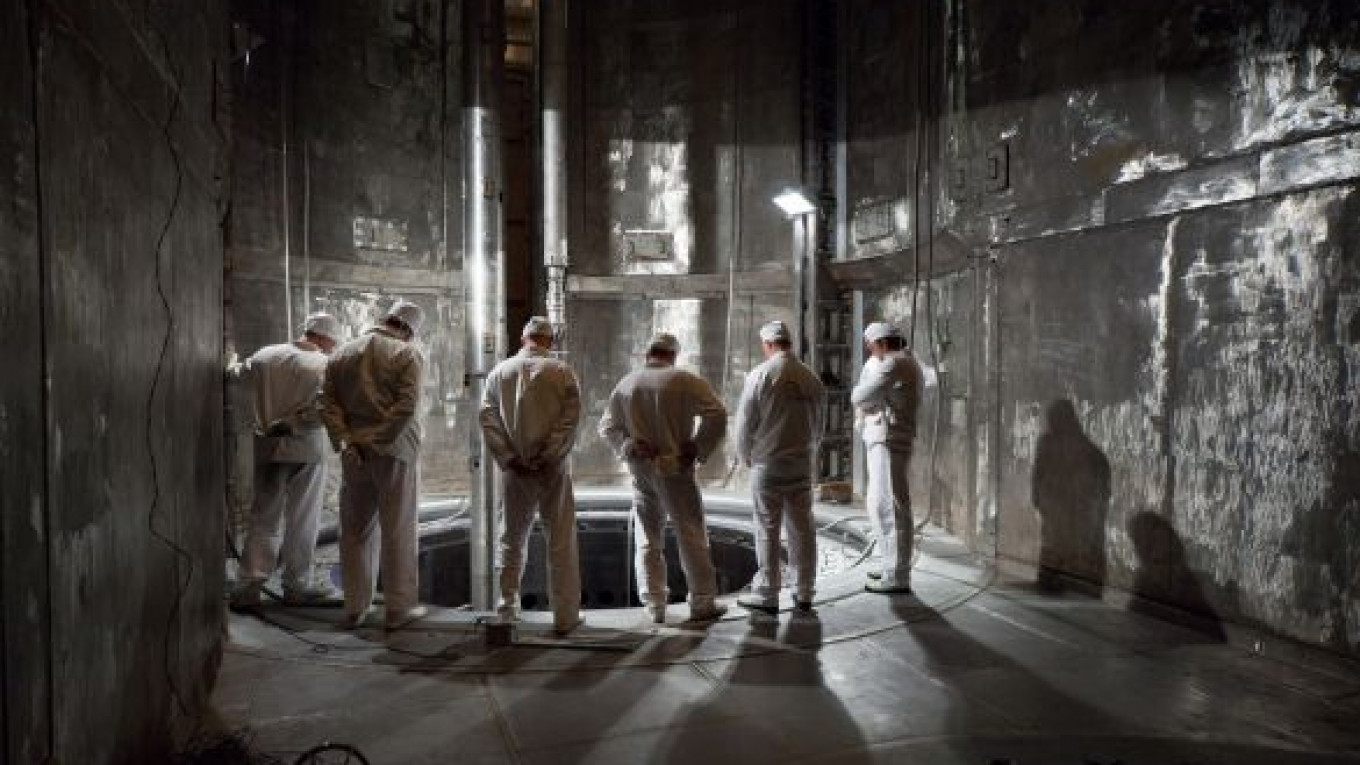Nuclear power has not had the best press in recent times. Germany vowed to give up atomic power last year in the wake of the Fukushima disaster that saw a nuclear meltdown and the release of radioactive materials, and many other countries remain divided over its use.
A recent poll had Russians fairly evenly divided, with 45 percent for nuclear power and 38 percent against. But don't expect to see any of that indecision at a new photo exhibit at the Multimedia Art Museum.
The title of the exhibit, "Atomic Civilization" tells you immediately what side the exhibitors have picked, and as the sponsors are Rosenergoatom, the state-owned energy giant that runs the country's nuclear power plants, this comes as no surprise.
The exhibit of over 100 photos is a public relations exhibit that might seem at first glance to be of interest only to the specialist or those connected with the industry, but the photos do provide a rare glimpse into an industry that in Soviet times was shrouded in secrecy. Although don't go expecting any revelations or criticism of the industry.
The most memorable shot shows a team of white-coated workers at the Kalininskaya power station during the final stage of the installation of a reactor. They are all peering down into a hole as if in expectation.
Other photos put you in the middle of the vastness of the modern plant. One photo shows a honeycomb control panel that looks as if it comes from a 1980s sci-fi movie.
The photos are a mix of amateur and professional shots and a glitzy opening ceremony saw industry employees handed prizes for a separate photo competition.
"It acknowledges years of dedicated labor and we in the industry are grateful for that," said Pavel Yakovlev, an atomic industry employee visiting the exhibit.
The exhibit marks Rosenergoatom's 20th anniversary, although the photos go back before then.
All the more amiss of them, you could say, to ignore the one event that everyone in the world knows — Chernobyl.
The first atomic power plant in world opened in 1954 in Obninsk, close to Moscow, and Russia has plans to commission more than two dozen more. There is little mention of that in the exhibit, however, which despite some interesting shots seems more like the industry patting itself on the back than communicating with anyone who wants to know more about a power that often divides.
"Atomic Civilization" runs until Sept. 2. Multimedia Art Museum, Moscow, 16 Ostozhenka Ulitsa. Metro Kropotkinskaya.? . +7 (495) 637 1100.
Related articles:
A Message from The Moscow Times:
Dear readers,
We are facing unprecedented challenges. Russia's Prosecutor General's Office has designated The Moscow Times as an "undesirable" organization, criminalizing our work and putting our staff at risk of prosecution. This follows our earlier unjust labeling as a "foreign agent."
These actions are direct attempts to silence independent journalism in Russia. The authorities claim our work "discredits the decisions of the Russian leadership." We see things differently: we strive to provide accurate, unbiased reporting on Russia.
We, the journalists of The Moscow Times, refuse to be silenced. But to continue our work, we need your help.
Your support, no matter how small, makes a world of difference. If you can, please support us monthly starting from just $2. It's quick to set up, and every contribution makes a significant impact.
By supporting The Moscow Times, you're defending open, independent journalism in the face of repression. Thank you for standing with us.
Remind me later.


